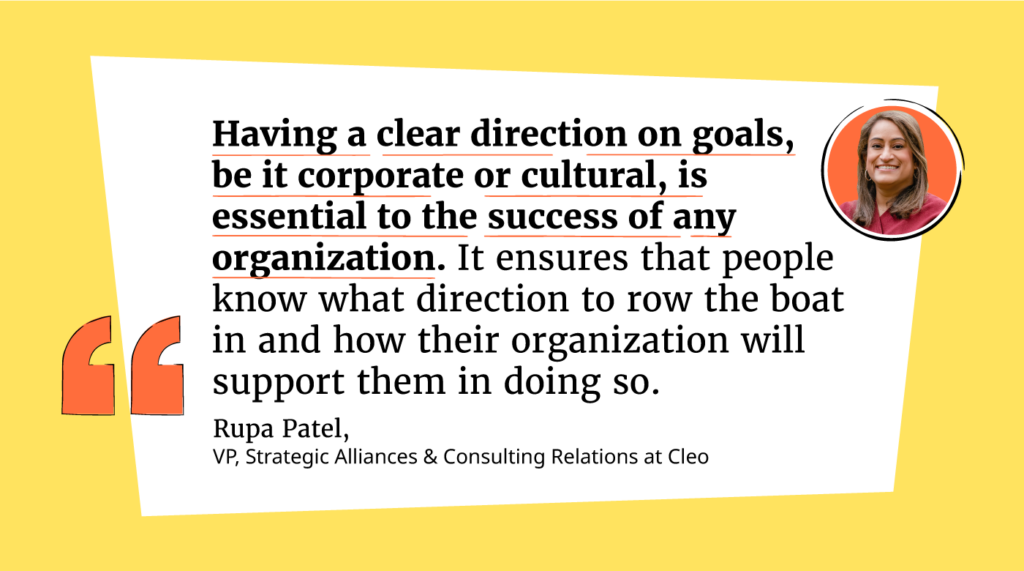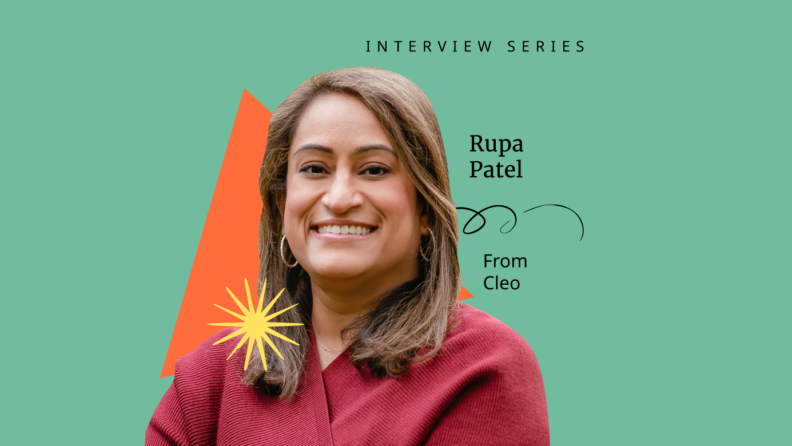We’re passionate about the world of work and how we can make it better. For this to be achieved, we need ideas from a wide array of people from different backgrounds and experiences.
In this interview series, we pick the brains of experienced leaders, business owners, managers, and individual contributors to get their thoughts on how we can collectively build better workplaces.
Hi Rupa! We’d love to get to know you a bit better, tell us a bit about your backstory.
As cliché as it may sound, I’ve always been driven to make the world a better place. This mission has been foundational to my educational and professional paths.
After finishing my undergraduate studies at The University of Georgia, I entered a public health program at the University of Alabama at Birmingham, where I was able to bring the worlds of altruism and realism together in a joint MPH/MBA program—learning how to improve the world from a practical standpoint.
Using the practical application of public health, I have spent my professional life working in various health benefits and health tech organizations working directly with prospects, clients, employees, and influencers.
Throughout my professional life, I’ve been able to carry out my mission in two ways: on a micro level, by being a people person dedicated to making my team cohesive and successful, and on a macro level, by applying my public health background to help clients and employees around the world to thrive.
If we were to ask a friend to describe your personality to us, what would they say?
When I surveyed my friends journalistically, they said that I’ve “always got their back” and I’m often “loyal to a fault, often putting [myself] second.” They also described me as “creative, collaborative, and empathetic,” but also “a force to be reckoned with”—all in a positive context, of course!
Thinking back to your career journey, what’s an interesting story that stands out?
I am the proud mom of two beautiful girls and the wife of the most supportive husband. These humans, and other loved ones that we consider family, are my motivation.
In 2018, my professional world stopped for them. I was newly pregnant with our second daughter and, simultaneously, my mother-in-law was diagnosed with a rare cancer.
I had been busy traveling from city to city, state to state, racking up miles as I focused on my professional growth and success. But my family needed me and I needed to be there for them—my employer at the time was not equipped to support me so I could support my family.
So, I put my career on hold to become a full-time caregiver—hopping between well-baby visits, chemo appointments, and preschool volunteering.
The two years I spent caregiving were the hardest of my life. However they were also the years that were most fulfilling. They helped me realize that there was a colossal need for a shift in the workforce, from thinking of employees as mere employees, rather than as whole people who participate in the partnership of work.
What’s the most impactful lesson you've learned over your career thus far?
Stop and listen.
Rather than just come to the table with solutions, stop and listen to the stakeholders. Understanding the full scope of concerns, obstacles, goals, expectations, and everything in between will not only help formulate a more seamless path forward, but also a more meaningful, trustworthy relationship between all the parties.
Incidentally, this lesson is not only massively helpful for careers, but on an interpersonal level with your spouse, children, and loved ones, too!

Thanks for giving us some insight into who you are! Let’s jump into things. When you hear the phrase “build a better world of work,” what comes to mind?
Direction, communication, and diversity.
Having a clear direction on goals, be it corporate or cultural, is essential to the success of any organization. It ensures that people know what direction to row the boat in and how their organization will support them in doing so.
We all strive for good communication with our partners, children, and friends, but it’s essential amongst colleagues and leadership teams, too. Open communication—which means that people are free to be honest about where they’re at—not only builds trust but also acknowledges employees as people. It establishes a solid footing of respect, regardless of title or job role.
Only through hiring and working with people from diverse backgrounds and approaches to problem-solving can we get a wider aperture on what the future of workforces can be.
Additionally, as leaders, we have to realize that with diverse people comes diverse work/life needs. The people who work for us are whole people who we get to borrow from their families and loved ones for a set amount of hours in a week.
Recognizing an employee’s individual and diverse circumstances from a work/life management perspective helps to ensure that the partnership between organization and employee is rooted in mutual respect—which, of course, produces better outcomes.
For you, what’s the main blocker you see as standing in the way of building a better world of work?
If companies continue to undermine the fact that their employees are whole people there will be no way that they’ll ever be innovative in the long run, and it certainly won’t build a better world of work.
What’s one thing within our control that we can practically do to build a better world of work today? And, how do you recommend going about it?
Owning mistakes, pitfalls, and weaknesses will always help an organization improve the next time and have a greater probability for success and growth. When accountability is present and the recognition—and remedy—associated with a misstep is communicated, the stigma is lessened.
It can encourage teams to continue to think creatively, be innovative, and assess at every step to ensure they are working towards the most effective, efficient, and impactful path in connection with the organization’s mission.
Can you share one thing you’ve experienced, seen, or read about that is leading us towards a better world of work?
There’s a huge shift happening within company cultures, benefits, and methods of supporting employees.
From flexible work schedules, to increased paid time off for parental and caregiving leave, to additional resources for mental health support, employers are thinking more creatively and holistically about how to support all employees and their unique family dynamics.
I’m curious, thinking about building a better world of work, is there a company and/or leader who stands out to you as someone we should follow? If so, what are they up to?
Christine Pabst, Director of Employee Benefits at American Electric Power, is a true standout. Christine is constantly thinking about and implementing innovative ways to support her employees across the country. She’s also a supermom of two teenagers and a cancer survivor!
How can our readers follow your work?
Follow me on LinkedIn at https://www.linkedin.com/in/rupa-m-patel/ or at www.hicleo.com.
Add your voice to the conversation
Join our interview series and share your ideas for how we can build a better world of work!


